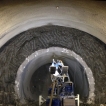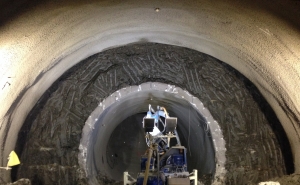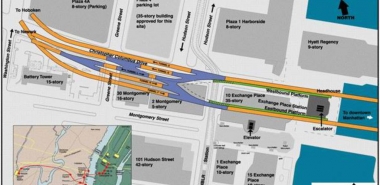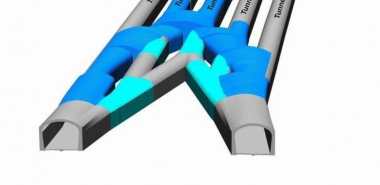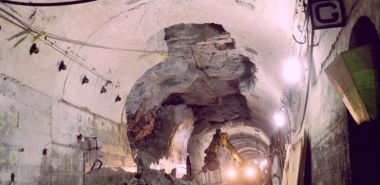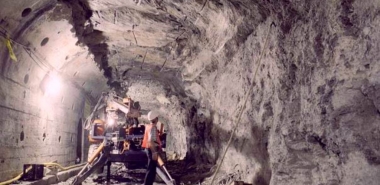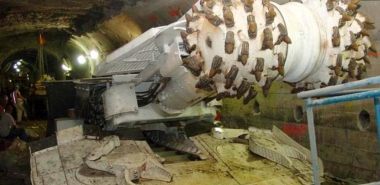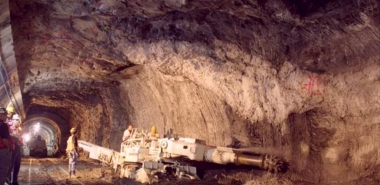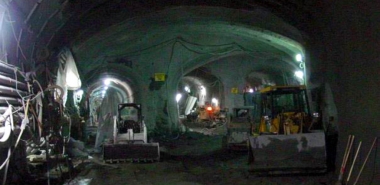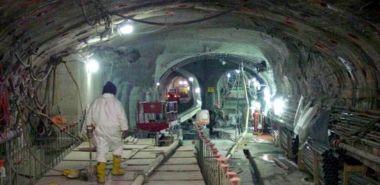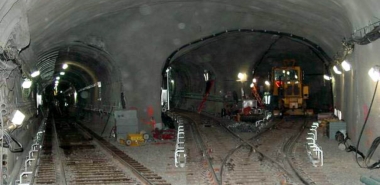You are here
Exchange Place Station - PATH Line Improvements
| Owner: | |||||
| Client: | |||||
| Service: | Tunnel excavation and lattice girder geometries and layout
|
||||
| Estimated cost: | Commencement: | October 19, 2002
|
Completion date: | October 19, 2003
|
|
| Location: | Jersey City, NJ United States |
||||
| Technical data: | Station platform expansion and track crossover reconfiguration for PATH Lines at Exchange Place Station; re-mining of running tunnels and crossovers. Excavation in Manhattan Schist with road headers and support of caverns with rock bolts, lattice girders and fiber reinforced shotcrete. |
||||
| Geology description: | Heavy foliated gneiss, schist, schistose gneiss with pegmatite intrusions occasional amphibolite; Transitional (Slope/Rise) Rock. |
||||
| Geology types: | |||||
| Categories: | |||||
| Bid cost: | Final cost: | $25,000,000
|
|||
| Service areas: | |||||
Exchange Place station on the Port Authority Trans-Hudson (PATH) commuter rail service between New York and New Jersey. After the collapse of the World Trade Center, Exchange Place station and the river crossing running tunnels were closed. Two 16 ft (5 m) long concrete plugs were installed at the Exchange Place end of the under river tunnels to prevent flooding of the subway system as a result of water flowing from broken water mains and sewer lines and generated by extensive fire fighting efforts at Ground Zero. Excavated in the mica schist of the New York / New Jersey region, the station complex comprises a set of five roughly parallel tunnels. Turning the existing elements into a terminus and extending the platform tunnels a further 150 ft (45 m) involves excavating new crossovers, modifying the profile of the existing tunnels, raise the invert and crown in others up to 9 ft (3 m) and back filling unneeded tunnel spaces to create the ground in which new spaces can be excavated. Only man access was available through the elevator facilities at the closed Exchange Place station, material had to be carried out by specially equipped work trains about 4 miles (6.5 km) west to the underground station to the surface staging areas. To re-open this important element of infrastructure - PATH provided a daily average of 260,000 passengers trips prior to September 11, 2001 - as soon as possible the whole project was finished in about 24 month.
